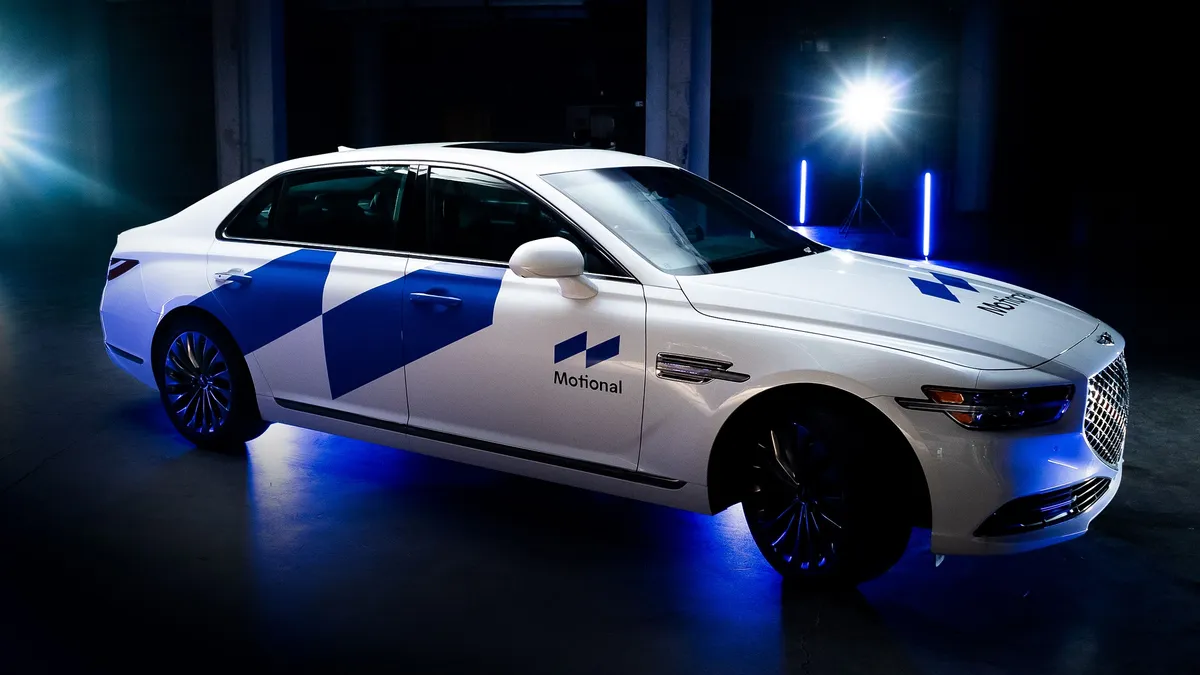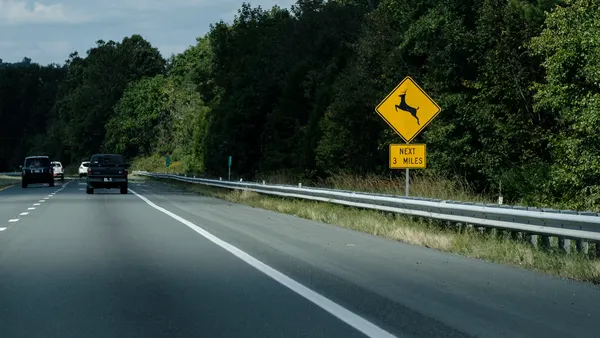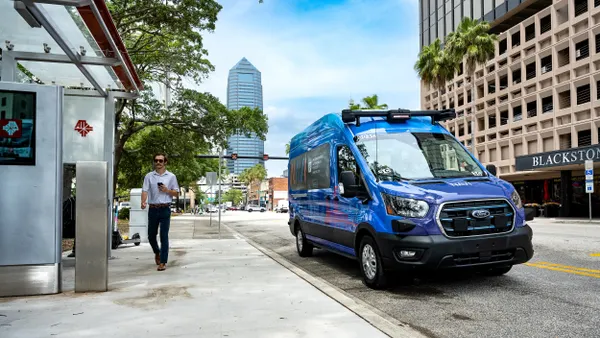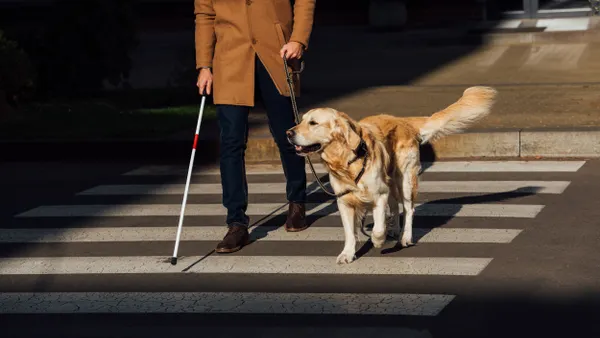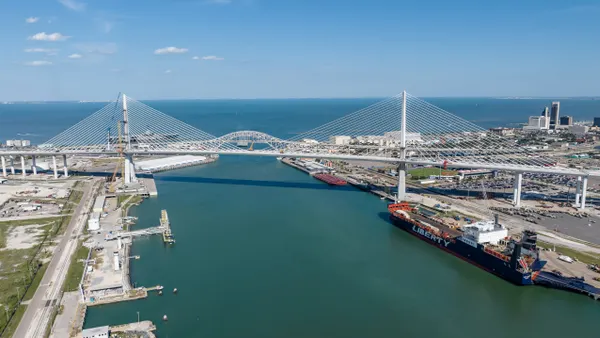UPDATE, Nov. 18, 2020: The State of Nevada has granted autonomous driving company Motional with permission to test fully driverless autonomous vehicles (AVs) on public roads.
This "driverless milestone" will be followed by a "rigorous, self-imposed testing and assessment period" in the coming months to pursue driverless testing on closed courses, said Motional President and CEO Karl Iagnemma in a blog post.
Motional had launched its robotaxi service in Las Vegas in 2018 under the Aptiv brand, and has since provided more than 100,000 rides in partnership with Lyft. Following a months-long hiatus in response to the COVID-19 pandemic, the partners resumed their AV mobility service in late October with "enhanced protective measures" to keep passengers safe.
Dive Brief:
- Hyundai Motor Group and Aptiv on Tuesday unveiled the name and brand of its joint autonomous driving venture: Motional.
- The joint venture was first teased in September 2019, with the partnership announcing its complete formation in March. Motional, worth $4 billion, will develop a fully automated system that it hopes to begin selling to companies and fleet operators by 2022, Reuters reports.
- On a Tuesday webinar hosted by media company Axios, CEO Karl Iagnemma shared the "three key ingredients" to be successful in developing autonomous driving systems: the ability to develop smart software, the ability to partner with an automobile manufacturer and access to at least $1 billion in capital. "Motional has those three things, [and] I feel great about how we're positioned today," he said.
Dive Insight:
Iagnemma, the former president of Aptiv and CEO of nuTonomy, joined the Axios webinar to share the announcement of Motional and explain how the venture is navigating the AV landscape amid the COVID-19 pandemic. The name Motional is derived of the words "motion" and "emotional," Iagnemma said.
"Whether we like it or not, transportation decisions have become emotional decisions," he said. "Deciding how you’re going to get from point A to point B safely is an emotional decision. So that insight is going to be at the center of every product we build at Motional."
He went on to discuss the venture's current footprint in the autonomous driving market, noting that developments at Aptiv have positioned Motional to have a strong hold in a number of major U.S. cities, including Boston, Pittsburgh and Las Vegas. The company also has a leg-up on competitors due to its international presence, Iagnemma said, noting it is an advantage that most competitors do not have.
When COVID-19 first washed over the U.S., Iagnemma said he was confident that its impacts would enable the public to "understand and appreciate the value of a driverless experience, not having to share space with an individual you may not know." To test this theory, the Motional team surveyed 1,000 people on their feelings toward transportation offerings, including AVs.
"What we found was pretty striking: 70% of people told us that risk of infection had a significant influence on their transportation decisions," he said. "About 1 in 5 people we talked to (19%) were more interested in experiencing driverless technology than they were pre-pandemic. So that tells me what we’re building at Motional is more relevant and more important than ever."
Iagnemma also said COVID-19 has highlighted the importance of access to a diversity of transportation options, which is now "more important than ever for the general public."
Joining Iagnemma in the AV webinar were a number of other transportation leaders, including American University professor and former transportation executive Selika Talbott, Los Angeles Department of Transportation General Manager Seleta Reynolds and Mothers Against Drunk Driving National President Helen Witty.



